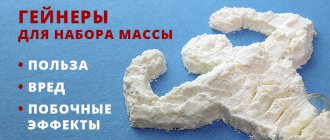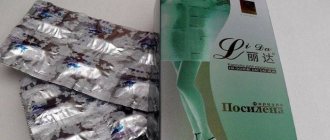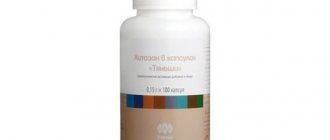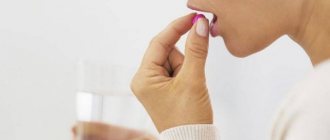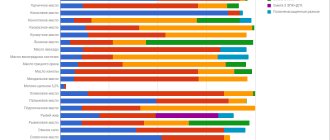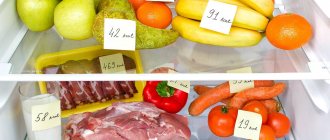Publication in the group: Diet food
Sweetener Fit Parade is a real find for people who cannot imagine their life without sweets and baked goods. The natural sweetener formula is low in calories and is considered completely safe for people with diabetes, since the zero hypoglycemic index of the food additive does not affect the amount of dextrose contained in the blood.
Chemical composition
Fit Parade is a white sweetener with a crystalline structure that is instantly soluble in water. Externally, the sweetener is very similar to sugar and has a taste close to refined sugar, but unlike it, it consists of safe, low-calorie components approved by Rospotrebnadzor and WHO, characterized by a zero glycemic index. The components of the drug include:
Erythritol
A natural sweetener, which is a crystalline sugar alcohol molecule that does not contain proteins, fats, or carbohydrates. The calorie content of erythripol is 0-0.2 kcal, and the glycemic index is 0 (in comparison, refined sugar has 2), which makes it an indispensable supplement for lovers of sweets, those suffering from diabetes, obesity, or those seeking to lead a healthy lifestyle.
Erythritol contains corn and tatone, and the sweetness of the powder reaches 0.6 units. from sugar. In nature, this sweetener can be found in melons, pears and grapes, which makes it absolutely safe for any organism.
Sucralose
An artificially created chemical compound often used in the manufacture of confectionery products. Sucralose is currently considered absolutely safe for the body, since out of 85% of the substances entering the body, only 15% is absorbed, and even those are excreted by the kidneys within 24 hours.
The sweetener tastes very sweet (600 times sweeter than sugar) and is therefore allowed only in very small doses. The sucralose molecule does not contain carbohydrates, which makes it indispensable for people suffering from obesity and diabetes, and is also very useful for teeth, since it helps protect against caries by cleaning tooth enamel well.
Stevioside
Natural sweetener E 960, obtained from dried Stevia leaves.
Due to its very sweet taste (300 times stronger than that of sugar cane), stevioside is used in the manufacture of:
- baking;
- confectionery products;
- liquor products;
- dairy products;
- carbonated drinks;
- juices
E 960 is considered one of the oldest nutritional supplements that helps cope with:
- with obesity;
- with diabetes mellitus;
- with exacerbation of cardiovascular diseases;
- with hypertension;
- with heartburn.
Stevioside is not allowed for pregnant and nursing mothers, since its full effect on the body remains incompletely studied.
Rose hip extract
An extract from plant fruits with a rich, sweet taste and a huge amount of vitamins and microelements. Due to its beneficial properties, rose hip extract is widely used in medicine as an immunomodulatory, choleretic agent that helps cope with excess weight and protect the heart and blood vessels by removing excess cholesterol from the body.
Jerusalem artichoke extract
Inulin-rich pear squeeze, which has a good cleansing effect.
Jerusalem artichoke, rich in vitamins:
- normalizes the functioning of the gastrointestinal tract;
- promotes the dissolution of cholesterol plaques;
- fights heartburn, diarrhea, dysbacteriosis;
- has a choleretic effect;
- Helps normalize blood sugar levels.
Selection of sweeteners
Which sweetener is safer? What to choose? Only a few of them have been studied so far, but they are found most often in food and drinks.
Aspartame
The FDA (American food and drug regulator) approved aspartame in 1974, when enough evidence had accumulated around the world about its safety. Why does the paranoia about him continue? Most likely due to several rodent studies. They showed that aspartame caused some forms of cancer in them ().
But experiments also showed that dangerous doses of aspartame for humans are much greater than those that any normal person can eat per day. The FDA has set the acceptable daily intake for aspartame at 50 mg/kg body weight. This is equivalent to 18-19 cans of Diet Coke.
Additionally, rodents and humans have different mechanisms for metabolizing aspartame, so the study results may not be generalizable to humans (). Aspartame has only been proven to be dangerous for people with the rare hereditary disease phenylketonuria: aspartame can create dangerous levels of the amino acid phenylalanine. Some studies show a link between aspartame and migraines. But for most people, aspartame is completely safe in reasonable doses.
Acesulfame potassium
Approved by the FDA for use in carbonated beverages in 1998. 200 times sweeter than regular sugar. The human body does not absorb it, so the substance does not provide any calories. One of its breakdown products is considered toxic in large doses - much more than you can eat in a day.
Sucralose
Although sucralose is made from sugar, the human body does not recognize it as sugar. Therefore, it is not digested and does not provide calories.
The acceptable daily intake for sucralose is 5 mg/kg body weight per day, but the typical calculated daily dose for humans is much lower, 1.6 mg/kg per day. Human studies have not shown any harmful effects. But similar to aspartame, some studies have found a link between sucralose consumption and migraines.
Saccharin
Of all the artificial sweeteners on this list, saccharin is the only one with a bad name. The FDA tried to ban it in 1977 as a result of a series of animal studies that found a strong link between saccharin consumption and cancer in rodents. Although no studies have shown a clear cause-and-effect relationship between saccharin consumption in normal dosages and human risks, some studies show a correlation.
There is no convincing evidence yet that saccharin in recommended doses is harmful to humans. So overall, even this has a fairly low level of risk.
In addition, saccharin is rarely found in modern dietary products, unlike aspartame and sucralose.
Sodium cyclamate
Sodium cyclamate is 30-50 times sweeter than sugar. A safe daily dose is 10 mg/kg body weight. The additive is permitted in many countries, including the European Union. It has been banned in the United States since 1969, but the issue of lifting the ban is being considered.
In rodent studies, sodium cyclamate increased the risk of bladder cancer, but epidemiological data do not support a similar risk in humans ().
Also, some people have bacteria in their intestines that are capable of processing sodium cyclamate to form metabolites that are conditionally teratogenic, so it is prohibited for pregnant women (especially in the first 2-3 weeks of pregnancy).
Xylitol
Xylitol is a sugar alcohol. It is a popular ingredient in chewing gum, candy, and other diet products. Due to its structure, like sugar, it stimulates special receptors on the tongue, entering them like a key into a lock. Xylitol is similar in sweetness to regular sugar, but contains 40% fewer calories - 2.4 calories per gram.
Xylitol is found in small amounts in many fruits and vegetables and is therefore considered natural. Humans also produce small amounts of it through metabolism.
Although sugar alcohols (xylitol, erythriol, etc.) are technically carbohydrates, most of them do not raise blood sugar levels. In addition, xylitol destroys bacteria that cause tooth decay.
Xylitol is usually well tolerated, but some people may experience gastrointestinal problems such as bloating and/or diarrhea if they overdose.
Erythriol is another sugar alcohol, but it contains virtually no calories (0.24 calories per gram). It is not absorbed by the body, passing through digestion practically unchanged. For people who suffer from excess weight, diabetes or other problems associated with metabolic syndrome, erythritol proves to be an excellent alternative to sugar.
Stevia
Stevia is an herb whose leaf extract is used as a natural sweetener. It is 200-300 times sweeter than sugar and has a slightly bitter aftertaste. Unlike aspartame, sucralose and other substances, stevia not only makes food sweeter, but also has pharmacological activity.
At low doses, stevia consumption is associated with overall anti-inflammatory and antioxidant effects (, , ). These effects are associated with protection of the kidneys, pancreas, liver and brain from damaging stressors.
But doses that are too high appear to be associated with fertility problems in animals. Although there are no human studies, it is wise not to exceed the recommended amount. As for the carcinogenic effect of chronically large excesses of the norm, it has been found in animals, but is assumed to be insignificant.
Adequate daily intake is 7.9-25 mg/kg body weight. This dose is sufficient for anti-inflammatory and antioxidant effects, but not sufficient for any harmful effects.
In what form is it produced?
Fit Parade is a sweetener presented on the Russian market in several variations that differ from each other in composition and taste.
Sweetener Fit Parade is available in various forms.
| Fit Parade №1 | A sweetener that has virtually zero calories and, on the recommendation of a doctor, is included in the complex treatment of type 2 diabetes mellitus or helps to significantly reduce body weight. | Recommended daily dosage is no more than 45 grams. 100 g of product – 1 kcal/4.2 kJ | Compound:
| from 200 rub. |
| Fit Parade No. 7 | Natural sugar substitute recommended for people suffering from
|
| 350 rub. | |
| Fit Parade No. 8 | Sweetener containing highly purified Stevia leaf extract. Helps remove toxins from the body, has a general tonic effect, helps slow down the aging process | About kcal |
| 298 rub. |
| Fit Parade No. 9 | A nutritional supplement featuring an improved formula. Suitable for preparing dietary (or diabetic) food | In addition to the main components, it includes:
| From 140 rub. | |
| Fit Parade No. 10 | An innovative product, similar in composition to sweeteners 1 and 7, but distinguished by a sweeter, richer taste. Indicated for people with diabetes or on a strict diet |
| 440 rub. | |
| Fit Parade No. 11 | An advanced dietary supplement with inulin that helps solve problems with excessive sugar consumption while simultaneously stabilizing the gastrointestinal tract. | 203 kcal per 100 g |
| 470 rub. |
| Fit Parade No. 12 | Sweetener in sachet form containing tropical extract from Buddha fruit, characterized by great taste and low calorie content | 0.5 gr. mixture is equivalent to 5 kg of sugar |
| 315 rub. |
| Fit Parade No. 14 | An ideal sugar replacement, recommended for preparing dietary and low-calorie foods | 100 gr. – 0 kcal |
| 480 rub. |
| Fit Parade No. 19 | Innovative sweetener in tablets |
| 160 rub. |
The choice of product depends on the wishes of consumers and the doctor’s recommendations, but Fit Parade variations containing inulin, which helps solve any gastrointestinal problems (including dysbacteriosis), are considered preferable.
The sweetener is available in the form of packaged white crystalline powder:
- in plastic jars;
- portioned sachets;
- paper bags with measuring spoon;
- compressed into tablet form.
Release options
The manufacturer of the sugar substitute makes it in several variations. You can find several variations of FitParad on sale under different numbers. The substitute “Svita” (based on stevioside) and “Erythritol” are also produced under this name.
The composition of the sugar substitute depends on the form of release.
FitParad No. 1 consists of the following components:
- sucralose;
- erythritol;
- tominambur extract;
- stevioside.
On sale, this sweetener can be found packaged in doy-packs of 400 g, cardboard boxes of 200 g.
Mixture No. 7 consists of:
- sucralose;
- stevioside;
- erythritol;
- rosehip extract.
It is packaged in doypacks of 400 g, sachets of 60 pcs. in packaging, boxes with a capacity of 200 g and cans of 180 g.
The most extensive list of components is in Fit Parade No. 9. It consists of:
- stevioside;
- tartaric acid;
- L-leucine;
- croscarmellose;
- lactose;
- silicon dioxide;
- Jerusalem artichoke extract;
- baking soda;
- sucralose.
It is produced in the form of tablets, they are packaged in 150 pieces.
The composition of the mixture under No. 10 does not differ from No. 1.
It is packaged in doypacks of 400 g, sachets (pack of 60 pieces) and jars of 180 g.
Fit Parade No. 11 is made from:
- sucralose;
- inulin;
- bromelain 300 IU (pineapple extract);
- stevioside;
- papain 300 IU (concentrate from the fruits of the melon tree).
This version of the sweetener has one form of packaging - doy-packs of 220 g.
FitParad No. 14 is based on:
- stevioside;
- erythritol.
On sale it is found in sachets of 60 pcs. and doypacks 200 g.
FitParad "Erythritol" consists only of the substance erythritol. Packaged in cardboard boxes of 200 g.
FitParad "Svita" is made from stevioside. It is available in 90 g cans.
Indications
Fit Parade is a sweetener used as a taste-improving food additive in the preparation of dietary (low-calorie) dishes for individuals:
- those suffering from type 2 diabetes mellitus;
- having excess body weight;
- playing sports and following a healthy diet;
- on a diet.
The white crystalline powder has a rich, sweet taste and dissolves instantly in water. Use 1.5-2 g. sweetener will allow you to enjoy tea or coffee with a familiar sweet taste, with a minimum calorie content.
In addition to drinks, Fit Parade significantly improves the taste made according to dietary recipes:
- sauces;
- desserts;
- fruit salads;
- baking;
- jams;
- jam;
- cheesecakes;
- yogurt;
- hot dishes.
Using Fit Parade helps you quickly and painlessly give up sweets and sugar during a forced diet, without causing stress caused by a sharp dietary restriction.
Sweeteners, insulin and diabetes
Some studies show that diet soda may increase the risk of diabetes by 6-121%. But all these studies are again based on observations. They can't prove that artificial sweeteners cause diabetes. They show that people who are more likely to develop type 2 diabetes drink diet soda.
Controlled studies show that artificial sweeteners do not affect blood sugar levels or raise insulin levels (, , , , ). Aspartame has a slight effect due to the amino acid phenylalanine, but the significance is so small that it can be neglected.
Advantages
Fit Parade is a sweetener, the advantages of which include:
- Positive effect of the dietary supplement on the body's carbohydrate metabolism.
- 24-hour withdrawal of the drug from the body, which prevents it from participating in the formation of the subcutaneous fat layer.
- Safety for people with diabetes. Fit Parade has a low hypoglycemic index, as a result of which it does not affect the level of dextrose in the blood.
- Natural composition and a small list of contraindications (unlike artificial sweeteners).
Reviews on the use of sweeteners in baby food
I am familiar with sugar substitutes from my own experience, most often I use fructose. There is no particular benefit or harm from it for children. It’s just that if we talk about sweets, then they should be excluded from the diet altogether. That’s why I replaced it with fructose wherever sweetness was indispensable. My child has a sweet tooth, it’s worth admitting. I'm probably to blame for this myself. He ate very poorly, and I had to add sweetener to the porridge, kefir, and cottage cheese. Fructose helps to this day.
Sofia, 31 years old
I was told that fructose is harmful for children, and I switched to the Fit Parade sweetener. Can a child have this sweetener? I think that's quite enough. I read its composition and instructions - it says that it can be given to children in limited quantities. But we add just a little bit of this powder to porridge and milk soup. It's better than regular sugar. I know for sure.
Alexandra, 26 years old
My son has fructose intolerance. It acts like a laxative on him. I stopped using this sweetener and bought stevia. I brew tea for my baby with the dried leaves of this plant. As for the rest, we are already doing without sweets, although the child is already one and a half years old.
Nadezhda, 29 years old
Not all children are as addicted to sweets as adults think. Many people accept regular food very well and enjoy eating unsweetened porridge, vegetable puree and fermented milk products. But if a child grew up on artificial feeding, it is quite possible that he will require a sweet additive to some foods. After all, the formula that replaces breast milk has a sweetish taste.
As for sweeteners, the market now offers a huge selection of various high-quality products that can become a safe and enjoyable addition to a child’s food. Their harm and benefit are determined individually. A pediatrician or any other specialist you trust will help you make the right choice.
To summarize, it should be said: you should be careful with sweeteners, but they are still an alternative to regular sugar, the harm of which is undeniable.
Contraindications for use
Fit Parade is not recommended for use:
- pregnant women;
- breastfeeding mothers;
- teenagers under 16 years of age;
- persons over 60 years of age;
- people who are prone to allergic reactions.
The use of the drug while expecting a baby and while breastfeeding is undesirable due to the small number of laboratory studies performed, which prevents a full study of the effect of the nutritional supplement. Expectant and young mothers should be attentive to their health, if possible limiting themselves to sweets and giving preference to natural fruits and vegetables.
In addition, artificial components of Fit Parade can enter the placenta and breast milk, causing allergic dermatitis in a newborn baby.
Teenagers under 16 years of age have an incompletely formed hormonal profile and a very sensitive body that can react negatively to any synthetic components, including those included in Fit Parade. When taking a sweetener, you should strictly adhere to the instructions, since an overdose of a food additive can provoke disruption of the gastrointestinal tract, causing diarrhea.
Established restrictions
Despite the manufacturer's assurances about the naturalness of sweeteners, they contain industrially approved sweeteners and natural plant extracts. For diabetics, such sugar substitutes are necessary, because due to poor absorption of glucose, they often crave sweets. And when using manufactured sweeteners, the sugar level in the body does not change in any way.
An overdose of sweetener causes a laxative effect. No more than 45 g of Fit Parada is allowed per day. You should stop using it:
- pregnant women due to potential effects on the fetus;
- nursing mothers;
- elderly people with kidney and liver diseases;
- allergy sufferers (with established intolerance to components).
Before planning to purchase a refined sugar substitute, it is better to consult an endocrinologist. He will help you understand the variety of sweeteners and tell you what to look for when choosing.
Side effects
Side effects when taking Fit Parade occur quite rarely and are most often associated with improper use of the drug or characteristics of the body:
- Flatulence, diarrhea. Appear after an overdose of sweetener. The allowed intake of the product is no more than 45 grams. per day (1.5 g per cup). An increase in the amount will cause disruption of the gastrointestinal tract, causing frequent bowel movements.
- Allergic reactions. The components included in Fit Parade can provoke allergies in people with hypersensitivity. For the same reason, the use of Fit Parade is not advisable for adolescents under 16 years of age. Sudden itching or redness indicates the development of an allergic reaction and requires immediate discontinuation of the drug.
Dr. Komarovsky about sweeteners
When parents ask whether it is better to use fructose or sugar as an additive to baby food, and what choice to make, experts answer differently. Pediatrician Evgeny Olegovich Komarovsky recommends replacing sugar with fructose or stevia in the following cases:
- If the child has problems with the kidneys and genitourinary system.
- If you want to keep your baby’s tooth enamel intact, but the child is already familiar with sweets and does not want to accept some foods without a sweet additive.
- If the child is prone to obesity.
Harm
Fit Parade is a sweetener, considered a practically harmless drug, approved for use in cases of metabolic disorders and diabetes. Despite the fact that the food additive has undergone many tests on animals, confirming its unique qualities, the actions of the sweetener have not been fully studied, which makes its use undesirable in a certain category of people, which include pregnant and lactating women, adolescents, as well as people older age.
As part of a food additive, the danger may be caused by the synthetic component sucralose, which until recently was considered harmful to the human body. In recent years, WHO laboratory studies conducted on animals have completely refuted the prevailing stereotypes, which has made it possible to include the component in many products and actively use it in the confectionery industry.
Unfortunately, there is no reliable data on the negative effects of sucralose on the human body, since there have been insufficient studies.
Previously it was believed that the use of sucralose could provoke the appearance of:
- severe allergic reactions;
- oncological tumors;
- diseases of the nervous system;
- gastrointestinal diseases;
- destabilization of hormonal levels;
- increase in subcutaneous fat.
The safe amount of sucralose is no more than 4 ml per day per 1 kg of human weight. Exceeding this norm instantly causes flatulence or diarrhea.
Analogs
Fit Parade is considered a universal sweetener with an innovative formula that has virtually no contraindications. On store shelves you can find analogue sweetener preparations that have similar composition and qualities.
| Stevia leaf syrup | A natural sweetener that allows you to reduce the calorie content of your diet by 10-15%. The syrup is 25 times sweeter than sugar cane and is indicated for therapeutic and prophylactic nutrition for people suffering from diabetes, obesity, and hypertension. Helps:
The calorie content of the product is 53 kcal per 100 g. | 300 rub. |
| Master Shape | A sweetener with a probiotic, used for the preparation of therapeutic and preventive nutrition, baked goods, desserts, and drinks for people suffering from high levels of dextrose in the blood and (or) excess body weight. 10 times sweeter than sugar | 200 rub. |
| Maste.o Prebiosvit. Fitness. | Universal sweetener for baked goods and desserts. 150 g packaging easily replaces 1.5 kg of sugar. Contains:
Approved for use in people suffering from diabetes because, when taken orally, it does not increase sugar levels and does not stimulate the production of insulin. | 180 rub. |
| Novawiss | A calorie-free sugar substitute used to sweeten foods. Made from Stevia leaves. No calories, has a 0 hypoglycemic index. 1 tab. equals 1 tsp. Sahara. Approved by Rospotrebnadzor for diabetic and dietary nutrition. Comprises:
| 260 rub. |
| WellFit | A sweetener that is 6.5 times sweeter than refined sugar. Contains only thermally processed products, which makes it possible to use the sweetener in the manufacture of baked goods and confectionery products. Comprises:
| 540 rub. |
| Sugar Zero | A food additive similar in sweetness to sugar, used for the preparation of:
It has a pleasant, sweetish taste. Contains no carbohydrates or calories. Contains WHO approved erythritol and sucralose. Does not affect the amount of insulin and dextrose in the human body | 299 rub. |
| Sladis | An instant table sweetener used to add a sweet taste to drinks and dishes. It has a taste similar to refined sugar, but at the same time:
Economical to use. Contains:
| 80 rub. |
| Floreal | A plant-based sweetener similar in taste to natural sugar, used to improve the taste of dietary dishes. Low in calories, has a zero hypoglycemic index. | 580 rub. |
Fit Parade is considered a universal sweetener that can significantly reduce the caloric content of the diet, as well as prevent the negative impact on the body of large amounts of sugar consumed daily.
The natural composition of the sweetener is approved by WHO and is approved for use as a food additive to improve the taste of dishes for people suffering from thyroid diseases, metabolic disorders, increased levels of dextrose, as well as those who are actively involved in sports and adhere to a healthy diet.
Differences between Fit Parade and other sweeteners
Remember the pharmacy “effervescent” sweeteners that we used to add to tea or coffee? Even if they are made with sucralose rather than cyclamate with aspartame, they have never been an ideal choice. First of all, such tablets are very suitable for cooking. They can only be dissolved in water and a sweet “extract” is obtained, but then it takes quite a long time to adjust the amount of water in the recipe experimentally. If the concentrate is made too strong, all baked goods will have a rather distinct bitter taste. If the concentrate is made too weak, there won't be enough sweetness. And these wonderful sweeteners tasted very good in tea and coffee. Conclusion? Yes, they are not the most convenient solution if you need to sweeten something more “interesting” than tea or coffee, and in tea and coffee they feel like a foreign element, especially if a person is used to eating regular sugar.
Fitness parade is a completely different matter. The only thing you will have to change is the dosage of the “white powder”. With Fit Parade, you don’t need to sprinkle heaps of sugar everywhere and add 3 teaspoons to a standard drink. Old packages of this product had a small measuring spoon that was convenient for measuring portions. So a serving of Fit Parada is about a quarter of a teaspoon, an ordinary teaspoon. Therefore, it can be difficult to “realize” that exactly how much should be put in tea, and based on this, measure the amount of product for baking and dishes. By the way, due to the violation of portion sizes, most people encounter problems with Fit Parade.
